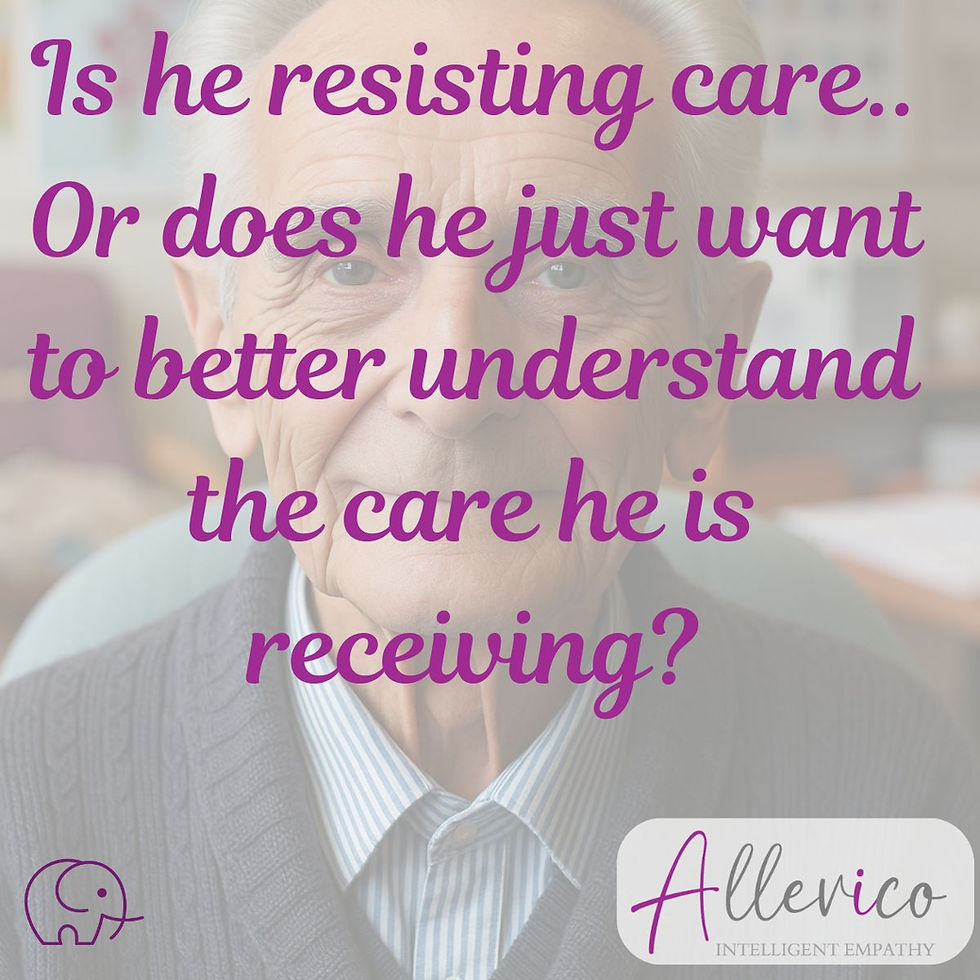Lilly and the Red Poppy
- Paul

- Jun 19, 2025
- 2 min read
TRIGGER WARNING: This story contains themes of grief and loss, which may be distressing for some readers

Lilly started to cry the moment her new carer walked in.
The carer didn’t expect it. There was no warning. No note in the handover.
She began to tremble. Then came the sobs, sudden and heavy, like a wave hitting fast. Was she frightened? In pain?
The carer called Lilly’s daughter, who thankfully answered.
They connected via video and held the phone out so she could see her mum. Her eyes narrowed. Then softened.
“The poppy,” she said quietly. “You’re wearing a red poppy.”
Lilly’s father had died overseas when she was six.
She never got to attend his funeral. But they gave her his poppy. The badge wasn’t just a symbol. It was a memory.
The carer took it off. Sat down beside her. Helped her look through photo albums of her father. Helping her relive her grief all over again.
When we understand the past, we can respond differently in the present.
More than 400,000 Australians are living with dementia, a number expected to double by 2058. According to Dementia Australia, more than 1.6 million people are involved in their care.
As the Royal Commission into Aged Care reminds us, “We must hear the voices of people with dementia and those who care for them.”
But hearing isn’t always about words. Sometimes it is about recognising a symbol. A red poppy pinned to a uniform. A small, silent memory that holds more weight than any care plan.
Lilly’s carer wasn’t wrong. She just didn’t have the full story.
When we make those stories easier to share, we also make it easier to care.
What if the tools we use to understand her felt as human as she is?Can we make care more personal, without making it more complex?
Have you seen a moment like this? We would love to learn from it.
Founder Reflections
“In this post, Lilly's stories aren’t missing, they’re just not where we’re looking. What if we could build systems that notice what’s too human to fit in a checkbox?” Paul Kirschner
“Some moments only make sense in hindsight. But what if they didn’t have to? The significant impact a small insight can have in the care we provide is why I am passionate about building Allevico.” Paul Murphy
“Technology shouldn’t try to replace empathy, but it can help us reach it faster. This story is a reminder of the kind of innovation that matters.” Paul Murray




Comments